Sheffield mum out of wheelchair and on to dancefloor after pioneering MS treatment
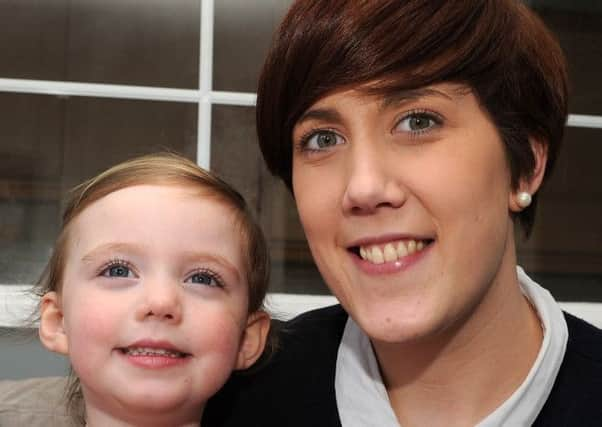

Holly Drewry was in a wheelchair as a result of her condition before she was part of a small group of patients given a new treatment at the city's Royal Hallamshire Hospital.
Within weeks, the 25-year-old was walking again '“ and now doctors are preparing to step up an international trial of the treatment to '˜reboot' patients' immune systems in the hope it can help MS sufferers across the world.
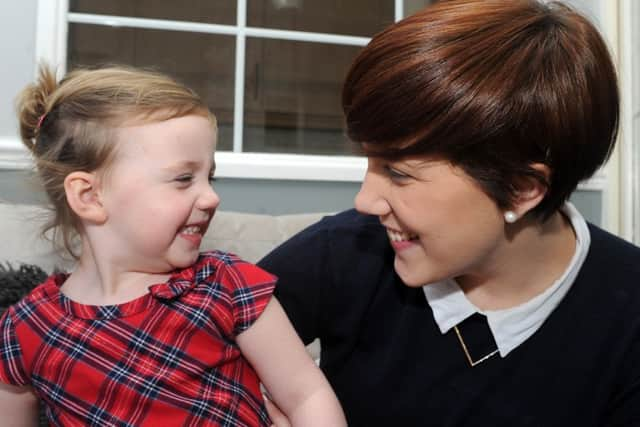

Advertisement
Hide AdAdvertisement
Hide AdHolly said she was first diagnosed when she was 21, after starting to suffer from blurred vision and numbness in one side of her legs.
Doctors asked her to do a test involving touching her nose with her hand and she was unable to do it.
She was referred to the Royal Hallamshire, where her MS was diagnosed.
Holly, from Norton, was initially on a course of steroids, but says her symptoms started to clear temporarily after she fell pregnant with daughter Isla, now aged two.
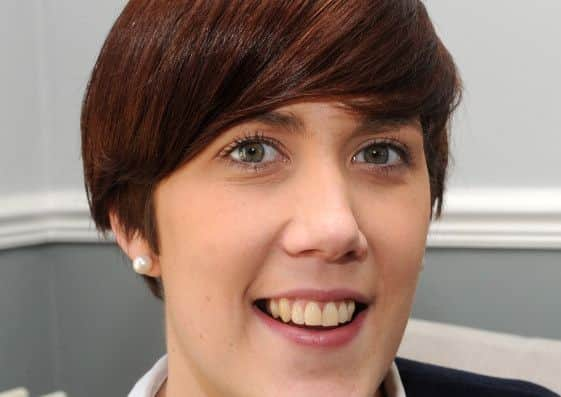

However shortly after giving birth, she had a relapse.
Advertisement
Hide AdAdvertisement
Hide AdHer condition grew more serious and she needed to start using a wheelchair for several months.
'I just went downhill and downhill. It was horrible,' she says. 'I was really independent and went to not being able to do anything yourself. I couldn't do anything.'
A number of existing treatments were tried, but nothing improved Holly's condition before doctors suggested a pioneering treatment, in which patients received transplants of their own stem cells.
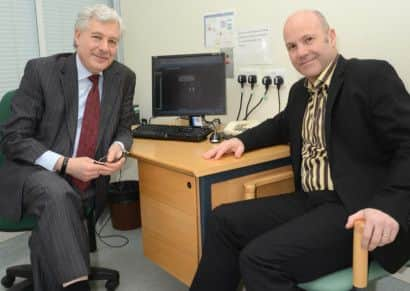

Holly says: 'They said if the stem cell treatment doesn't work, nothing will. It was a last resort.'
Advertisement
Hide AdAdvertisement
Hide AdShe had the stem cell treatment in May 2013 and was able to walk out of hospital '“ with just the support of one crutch '“ a few days later.
Holly says: 'The treatment worked wonders. It was only a couple of weeks before it started to work.
'I went in on a wheelchair, but I was eventually using crutches to get around the ward. I was in a wheelchair for about four to five months, but I walked out of hospital with just one crutch. Within a couple of months, I was walking fine.
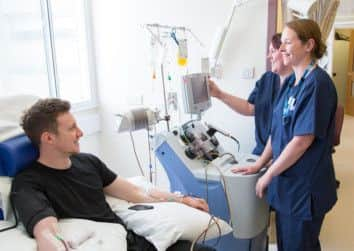

'It was an absolutely amazing feeling. When you are in a wheelchair for that long and have had treatments that hadn't worked you do begin to give up and think I might not walk again.
Advertisement
Hide AdAdvertisement
Hide Ad'Somebody could stamp on my foot and I wouldn't feel it. Everybody has to do everything for you.
'I used to be really busy and had three jobs, but then I couldn't walk with my daughter. Now I can go out dancing my friends like I used to. I used to be the life and soul of the party. You take a lot of things for granted and when you haven't been able to do it, you appreciate it. I'm very lucky.'
Almost two years after her treatment, Holly is yet to have a relapse and hopes her treatment will prove to be a permanent success.
Holly says: 'I still have MS. Nobody really knows what will happen long-term, it is just a big question mark, but I feel great and I have felt great since having it.'
Advertisement
Hide AdAdvertisement
Hide AdThe treatment, which was developed to treat cancers such as leukaemia and lymphoma and is being used at the Royal Hallamshire, is the first to significantly reverse disability of MS in certain patients who fail to respond to standard therapies.


MS is an immune mediated disease of the central nervous system which has no cure.
Although no-one understands the exact cause of this illness, doctors believe that in susceptible individuals something triggers the immune system to attack the brain and spinal cord, leading to inflammation and degeneration resulting in disability.
The treatment aims to reverse this mechanism by '˜rebooting' the immune system.
Advertisement
Hide AdAdvertisement
Hide AdChemotherapy is used to destroy the dysfunctional immune system, which is then rebuilt with stem cells taken from the patient's own blood.
The harvested stem cells are then infused back into the body where they grow new blood and bone marrow cells after two to three weeks. Tests have allowed one patient, who had been blind, to be able to see again.
Professor Basil Sharrack, a consultant neurologist at Sheffield Teaching Hospitals NHS Foundation Trust, said: 'Since we started using this treatment in a small number of patients with severe inflammatory disease who had failed to respond to standard therapies, some of the results that we have seen have been very encouraging.
'The treatment is not suitable for everyone because it has a degree of toxicity and patients need to be quite fit to withstand the effects of the chemotherapy. These initial results now need to be confirmed in a larger randomised clinical trial.'
Advertisement
Hide AdAdvertisement
Hide AdAbout 24 patients in Sheffield and London have been given the treatment since 2012 as part of a small-scale study.
'But the next stage of the process will now be a larger randomised controlled trial, which suitable patients are now being recruited for.
Sheffield is the only UK site involved in the next stage of the trial, which is being led by doctors in Chicago, Illinois.
The trial is expected to run until December 2016 and will publish its results about a year later '“ for details, email [email protected]